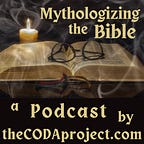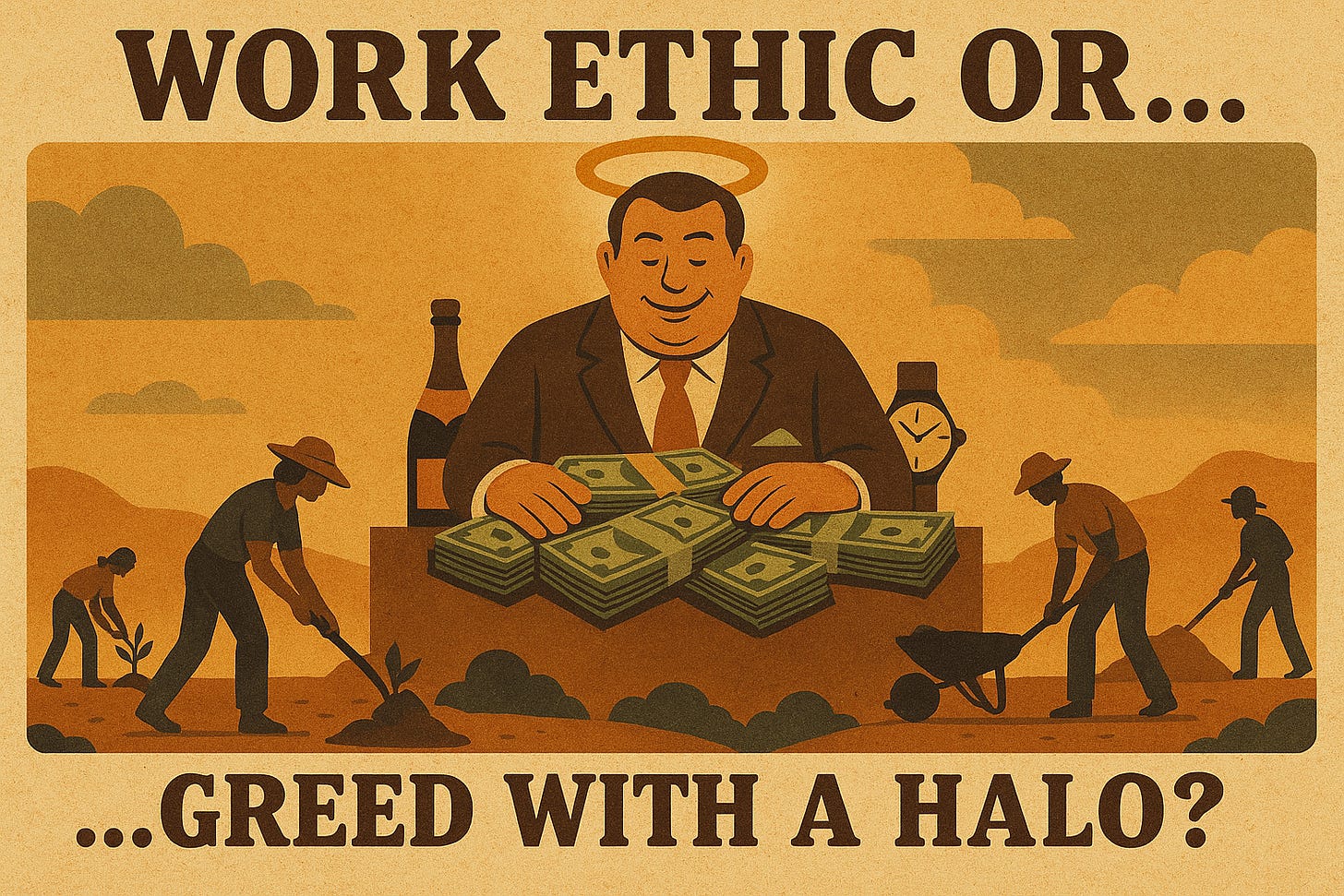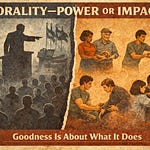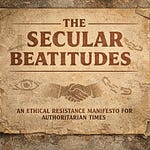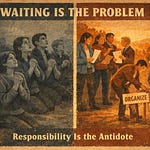Somewhere along the line, “hard work” stopped being about contribution and became a moral cover for greed. Billionaires hoard, workers struggle, and politicians quote Scripture to justify cruelty. It’s time to challenge the myth that wealth equals virtue and remember that fairness, empathy, and integrity (not blind productivity) are what make work meaningful!
You’ve probably heard the phrase, “If you don’t work, you don’t eat.”
It’s a verse pulled from the Bible (2 Thessalonians 3:10) and it’s been used for centuries to moralize about poverty. But in modern America, that line has become more than just Scripture; it’s practically an economic doctrine. Somewhere along the line, it got twisted into the idea that wealth equals virtue, and that if you’re struggling, it’s your own damn fault.
The idea started as a theological concept. Early Protestant reformers like Martin Luther and John Calvin emphasized hard work, discipline, and frugality as signs of good moral character. Work wasn’t just how you survived, it was how you proved your righteousness. Centuries later, that evolved into what sociologist Max Weber famously called “the Protestant Work Ethic.”
So, in this episode of afterthoughts, let’s explore how that mindset and the Protestant Work Ethic became the moral “cover story” for greed.

